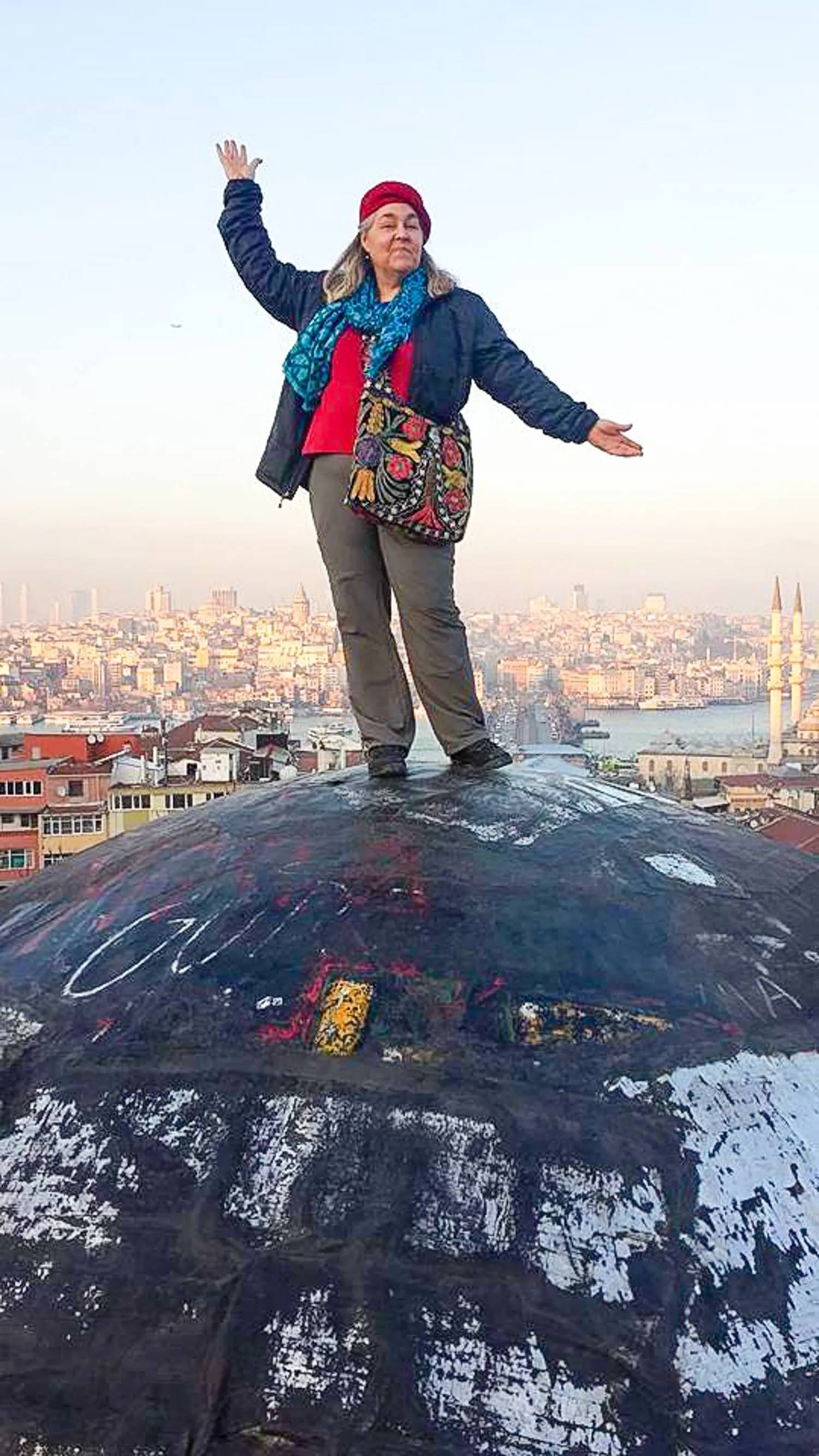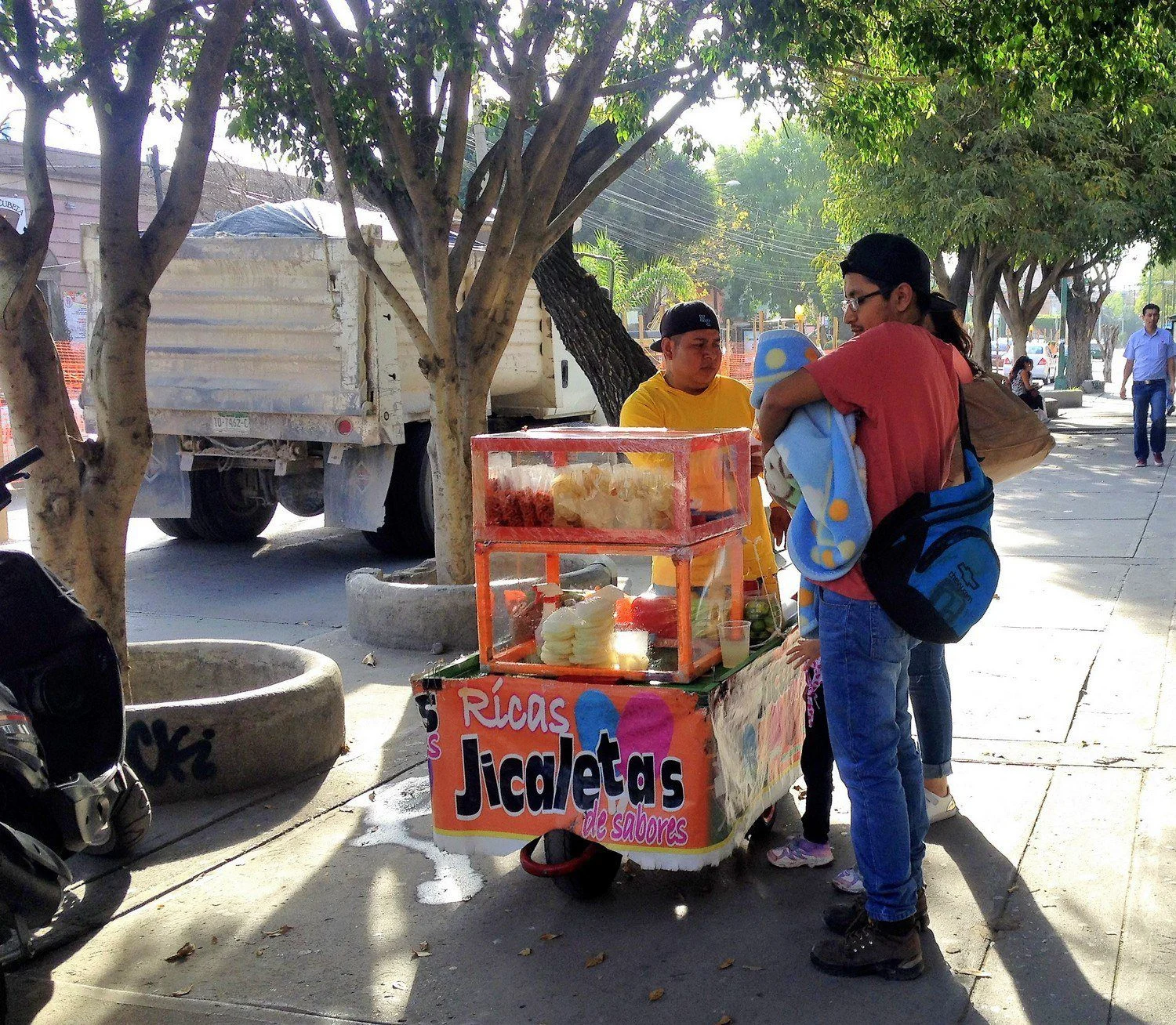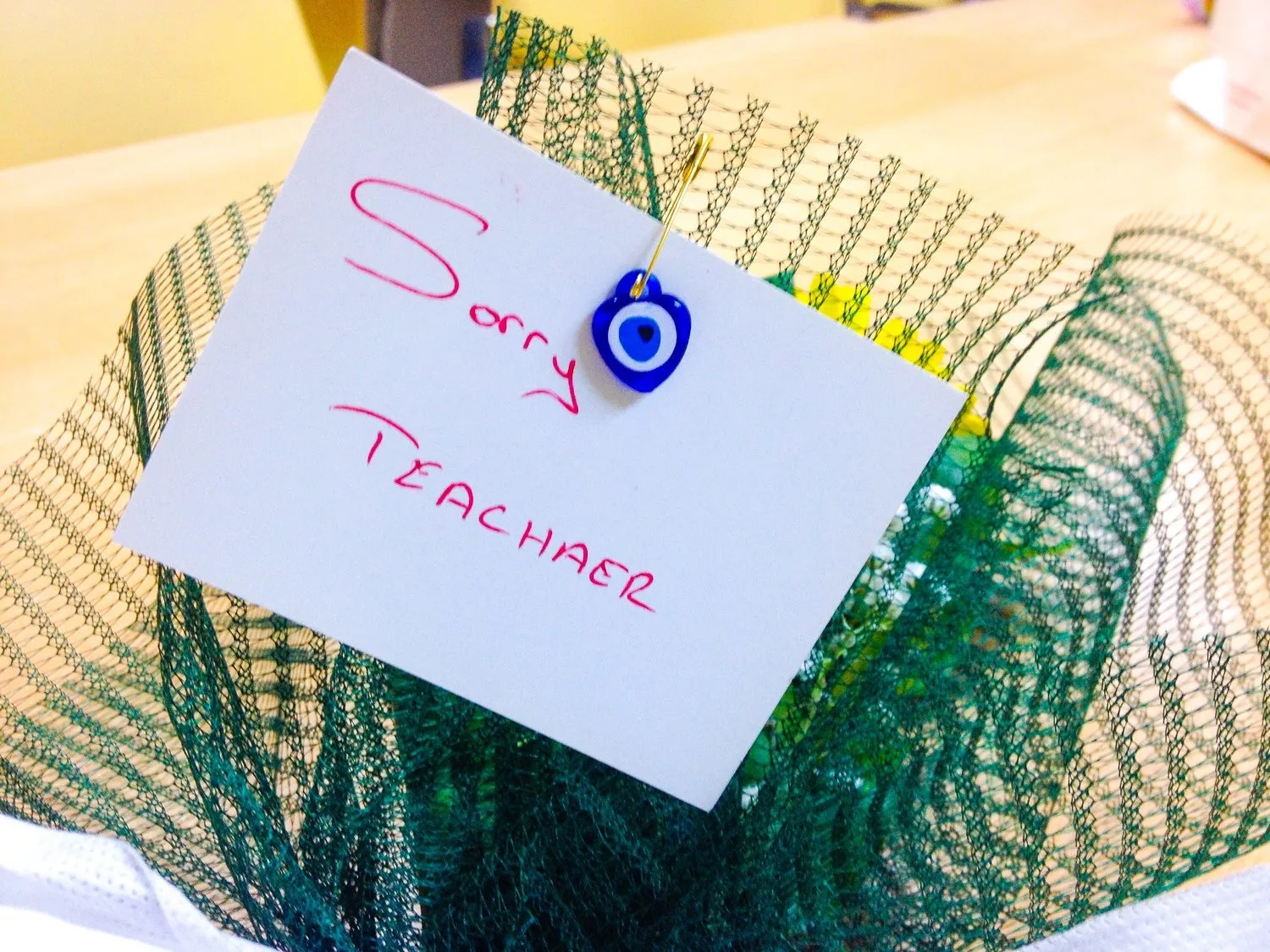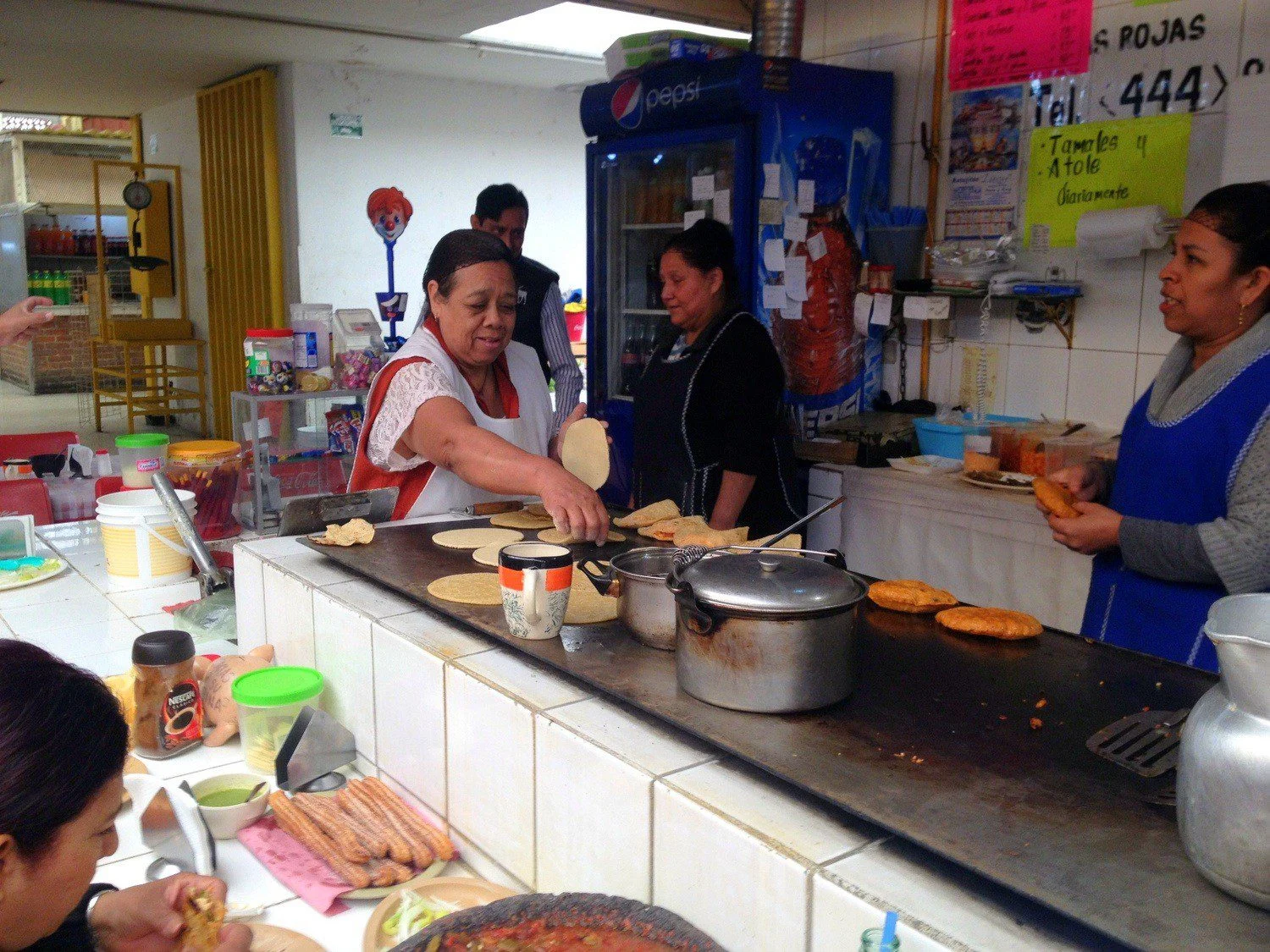
Teaching Traveling: Is it possible to travel and teach around the world after age 50? Yes!
Let’s meet Beth Robinette of WanderForLife, a woman from Atlanta, GA, and is currently living and teaching in Mexico. Beth, tell us about yourself.
Beth: I’m 58 (58? How did that happen?) and originally from the mid-west. I was in my 40’s before I ever traveled outside the US, but I quickly got hooked. At this point, I’ve been to over 30 countries.
I even had to get a new passport a couple years ago — not because the time limit was up, but because I had run out of pages! So far, I’ve lived and taught English in 5 countries outside of the US.
I’m a person who likes to change her life up every decade or so. I get bored easily. I’m in my third major career. First I worked in radio/TV, mostly as on-air talent in news and weather. It it didn’t pay well because I worked in small markets. Let’s just say that Jane Pauley wasn’t looking over her shoulder, afraid I’d take her job. I was dependable, but not major market material. It was interesting work, but also depressing. “News” is all bad news.
At 30, I went back to college and got a degree in Chemical Engineering, mostly so I could support myself “in a manner in which I hoped to become accustomed.” It let me get a pension and a retirement portfolio (which I’ll need someday).
I also saved money to take “early retirement” to the current “job” I have now: international English Teacher. The pay is much worse, but I have a rich life!

TT: Love it! Tell us more about your travels.
B: I left my cubicle job in February of 2014. First I hiked 1,405 miles of the Appalachian Trail (that’s only about 2/3’s of the trail). Then, I began teaching English internationally.
I started in Vietnam for 5 months — and got to see Ankor Wat in Cambodia during a border run to renew my visa. I lived in Istanbul, Turkey for a year (with side trips to Athens, Paris and Belgrade).
Istanbul is an amazing city with enough history to keep you busy for a lifetime, but it might not be the best option at the moment due to current events. It was a good time go… and to leave.
Next I did a one month volunteer job in Valencia, Spain, before hiking 450 miles of the Camino de Santiago, an old pilgrim’s trail that takes you across Spain, east to west. Then I took a two month summer job in Nahodka, Russia with a side trip to Moscow.
Right now, I’m living in San Luis Potosi, Mexico. I’ve managed to see several nearby towns and am surprised at the diversity in the culture. I’ve had to join the gym because the food is so good! In July, my one-year work visa will expire, so I’ve already made plans to move and work in Arequipa, Peru. Machu Picchu is on my list to see while I’m there!

TT: I am so inspired by your adventures. How do you find your travel opportunities?
B: I’m mostly looking for work — not just travel opportunities. I have a job placement agency, through the school where I got my TEFL certification, but they’ve not been as helpful as I’d like.
I usually find my own jobs, often through the internet. I also ask other teachers about their past schools.
TT: Brilliant. How did you find the money to fund your travel?
B: I work in the countries I live in, but find that a teacher’s salary will only cover my day to day living expenses — rent, food and transportation around town. Not much more. I put away a lot of money before I started this adventure.
I frequently need to dip into my savings to fund side trips, flights and get established in a new country. I also keep travel insurance, and my salary doesn’t cover this, either. I’m essentially a volunteer with room and board.
If I had not been able to save money before I left, I would have focused on countries that pay better — the Middle East (especially Saudi Arabia), South Korea and some parts of China. Unfortunately, these countries are not attractive to me personally and/or it’s difficult to get a work visa in these places if you are over “a certain age.”

I’d also seriously consider an English teaching position with The Peace Corps, since the do pay minimally and help you financially with transitioning back to the States. I may still do this, in fact.
I could also make more of an attempt to monetize my blog, write more and promote my e-books, or find travel writing assignments. It’s difficult for most people to totally fund their travels through these methods, but they can help substantially.
Something I’ve been trying here in Mexico is being a live-in tutor (not an au pair). I live with a family and teach them English in exchange for room and board. I work evenings and weekends at a school for money. My salary goes a long way since I have few expenses now.
This situation is working out extremely well, but I’ve been lucky to find an amazing family. To make this successful, you have to have clear boundaries and responsibilities. Without these, you may think you are there to teach English and they think you are a combination maid, babysitter, or cook.

TT: Interesting! Did you have a mentor or role model to help make your travels happen?
B: I have to say that the lack of role models was an issue for me. I probably put away a much larger nest egg to fall back on than I would have if I’d had someone else’s example to follow. Plus, my family was NOT happy about my career choice. It would have been nice to have someone I could point to and say they had done this successfully. I had to figure it out on my own. And I’ve made mistakes.
The biggest thing is that what I thought would be difficult, wasn’t. Sure, I get lost and I have translation issues. Of course all the food and the culture is foreign to me. Yes, I had to learn how to teach, and each school has different priorities and schedules. But that’s not what has been difficult. You can figure those things out.
What’s been the most difficult is, in my experience, all schools have stretched the truth. Just because you’re promised a year contract, minimum hours, regular pay schedule, holiday pay… the rules may be different once you get there. Be emotionally prepared for that. This isn’t your home country, so you aren’t in a position to sue or even complain much. You have to decide if you can live with or not. You can complain, but that’s no guarantee anything will change. You may not be able to count on them for much assistance, either. If they will pick you up at the airport, show you where the school is, orient you to their teaching program and help arrange a reasonable living situation, that’s solid. Any more is gravy.

TT: That’s frustrating! What tips do you have for potential English teachers abroad to deal with shifting school promises and situations?
B: To mitigate the situation, I suggest:
1. Before taking the job, get the email address of someone who has worked at the school for several months. Preferably talk to someone in your age group (at my age, I’m not interested in the night life or dating scene). Ask them how it really is at the school. Specifically ask about pay/hours/living situation/curriculum. Also ask about the number of unpaid hours you’re expected to work. Lesson prep and grading is never paid, but if there are weekly meetings, massive paperwork, office hours and extensive “training” that’s unpaid, you should re-consider. In theory, your placement company (if you have one) should help you with this, but mine is not very reliable and I suspect others are even worse.
2. Decide what’s most important to you. Don’t complain about everything. Pick your battles. Only sit down with the manager/owner for things that are really important. For example, when I moved to Mexico, getting Spanish training was very important to me. I was less concerned when I didn’t get the number of teaching hours I was initially promised or that holidays weren’t paid (though they were promised). When I didn’t get the Spanish classes I was promised, I sat down with the owner and explained the situation. I got the classes.

3. Learn to be self-sufficient and remind yourself that this is an adventure. Remember that you are probably seen as a commodity by the school — a resource that won’t be here long, so they won’t put a lot of time and energy into you. You’re on your own. Besides, if everything went smoothly, you’d have no great stories to tell later. Great stories almost always start with things going wrong.
4. On the other hand, you need resources and it’s important to make new friends. I’ve gotten a tremendous amount of help from my students. This can help them practice their English speaking skills, so it’s good for them as well. I often set up an hour at a coffee shop nearby once a week where I tell my students I’m open for free conversation. I come prepared with questions about the culture, things I want to find and know. If I need a new apartment or a second hand bike, I ask for their help. I learn a lot and they get a benefit too. If you do this, you’ll often get invited parties, family meals, day trips or cultural events.
5. Learn to live within your means. I’ve got a blog post on How to Live Frugally as you travel. It’s very common for schools to pay a day or two late. Have back up money/credit cards/ATM cards. I’ve made it a rule that if I’m not paid for 4 days after a payday, I won’t teach. I don’t say it as a threat, but I tell them this the first time I’m not paid on time. I had to do this in Turkey and it kept them paying me, where other teachers would end up being owed lots of money because they were afraid to speak up.
6. Have “walking away” money and a Plan B. If they simply stop paying you or they don’t get you the work visa they promised (a problem I had in Vietnam), you may have to leave. So far, Vietnam is the only school I left before the end of my contract, but I came close in Russia. On arrival, the hours were double what I’d been promised and the schedule was very different from what we’d agreed to. I was willing to give on the schedule (though I was very unhappy about it), but not the total hours since I was being paid a flat fee for the summer. I said that this wasn’t what we’d agreed to.
Their response was that the situation had changed and it was too bad. I simply said that I was sorry this wasn’t going to work out, and I’d just get a taxi to the airport and leave right then. Since they had a full schedule of classes starting in 3 days and they’d promised a native English speaker, they re-negotiated my pay. I was never able to trust them again, of course, but I’d made the situation something I could live with for the summer. I wasn’t that great at work negotiations when I started this, but I’ve gotten a lot of practice.
7. Be blameless. Always be on time and prepared for class. Do a little extra. Be nice to the staff. Be positive, especially when speaking about your school to students or potential students. If something goes wrong, you need to be above reproach. I was just in a situation where a large amount of money was missing and I was a suspect. There’s nothing worse than being accused of a crime when you’re a foreigner and don’t speak the language well! I was terrified! I was able to demonstrate that I didn’t take the money, partly because I had always been reliable and honest.

TT: Excellent advice. Now, tell us one moment from your travels that was particularly interesting.
I was thrilled to move to Istanbul for a year. It was a life-long dream. I worked hard to learn Turkish and how to get around in the city. My apartment was on the metro-bus line.
Initially, I tried to practice my few words of Turkish with the passengers. I am a friendly, outgoing person and I’d give a simple greeting to fellow passengers. Most of the women would just nod, then look away and not return my greeting. The men, however, were very friendly. TOO friendly.
After the third man followed me off the bus and tried to offer me money for “services,” I finally figured it out. Most of the prostitutes in Istanbul are foreigners. They are also the only women with open-mouthed smiles and who look men in the eye. Good Muslim women do not do these things.
Let me stress that I was very conservatively dressed by Western standards with little make up and did not feel I was being provocative in any way. Every culture is different and sometimes it’s hard to know what signals you are putting out.

TT: What a story! Glad you figured it out, and it’s an important lesson about culture. So, how have your travels impacted you as a teacher and as a person?
My whole life is different. I no longer am interested in “things.” I have a suitcase and a backpack. If my possessions don’t fit into these, I don’t want them. I don’t buy souvenirs for myself, only for family or friends.
I want experiences, stories and photographs, so my “spare” money is spent on those things — trying new foods, seeing a new city, taking a tour, experiencing local life and attending festivals. I’m immersed in the culture. I don’t even think in terms of exchange rates, because I’m paid in local currency.

At the moment, I’m very focused on learning Spanish. I work at it every day and I’m terribly slow, especially at listening skills. But I believe that being a beginner in a language helps me see the difficulties of learning a language from my student’s point of view. It makes me a better teacher.
For the foreseeable future, being a teacher is my career, so I want to be good at it. Even after my pension kicks in, I’ll probably continue teaching. I love it and it’s the perfect way to meet new people.

TT: Indeed. What advice do you have for teachers who are dreaming of travel, or travelers dreaming of teaching?
- First: Just do it. Life is too short not to follow your dreams. If you aren’t sure if you’ll love it, then choose a short-term assignment, rather than commit to a full year. Or you take a volunteer vacation. Give it a try.
- Need practice teaching English? Volunteer in your community to teach English to immigrants. I did and it was a great experience.
- Get a TEFL — preferably one where you are in an actual classroom, with an experienced teacher. If you can, choose a program that offers lifetime job placement support.
- Not sure about a “foreign” culture? Do you have a Chinatown, Mexican food cart, Vietnamese restaurant or Mediterranean grocery? Give these places a try. If they excite you, living in these countries might be for you.

- Afraid to go alone? Don’t be! I have done almost all my travel by myself. Sure, I was scared at first, but now I prefer it. Another person can isolate you from the experience. And who wants to spend all their time negotiating with someone else where the next meal will be?
- Want to know what it’s like? Read some blogs, like this one. You can read mine, too: WanderForLife.com. I highly recommend you keep a journal or blog to share the experience with your friends, and later, to remember the experience.
- Prepare yourself. I spent 5 years getting ready for this adventure. It included saving money, paying off debt, reducing my possessions, getting a TEFL, getting teaching practice, and (mostly) working at my job long enough to get a pension. I also got my banking, credit cards, and will in order. It was a long 5 years. To stay motivated, I put this Steve Jobs quote on my cubical wall and read it every day: “Remembering that you are going to die is the best way I know to avoid the trap of thinking you have something to lose. You are already naked. There is no reason not to follow your heart.”

TT: Thanks so much, Beth! Readers, what questions or comments do you have for this remarkable traveler?

The author, Lillie Marshall, is a 6-foot-tall National Board Certified Teacher of English from Boston who has been a public school educator since 2003. She launched TeachingTraveling.com in 2010 to share expert global education resources, and over 1.6 million readers have visited over the past decade. Lillie also runs AroundTheWorld L.com Travel and Life Blog, and DrawingsOf.com for educational art. Do stay in touch via subscribing to her monthly newsletter, and following @WorldLillie on social media!

Kate Dana
Monday 7th of August 2017
Another inspiring article from a teacher doing what they love while living abroad! Thanks for the stories and honesty, especially about the sketchy (as well as celebratory) situations in different countries. Lillie Marshall really knows how to feature the best!
Beth
Monday 7th of August 2017
Awwww. Thanks! I am currently in Arequipa, Peru and am seeing some of the same "mis-information" (Actually, I prefer the word "lies") from the school here as in other countries. Based on my experience, this is simply how they all operate. They tell you what they think you want to hear in an interview. Try to ask open ended questions, not yes/no questions, so it's harder for them to lie. BUT, schools simply won't do everything they promise, so decide what is important to you, what you're willing to give on and where you will draw the line. Peru is an amazing country. I love teaching and my students. But I probably won't stay as long as I'd hoped based on how badly the management here has let me down. I'm not the only teacher who feels that way.
Lillie
Monday 7th of August 2017
Aww, thanks so much, Kate!
Jean
Thursday 22nd of June 2017
Dear Beth R.
You are an amazing & inspiring person.
I wish I could be more adventurous, like you. At this point, I will have small adventures, traveling around the U.S.A.
Keep traveling & enjoying life!!
A fan Jean Langford, Huntsville, ALabama
Beth
Thursday 22nd of June 2017
Thanks so much for featuring me! I hope readers will be inspired to follow their dreams. My life isn't easier, but it is better! Visit my blog: www. WanderForLife. com